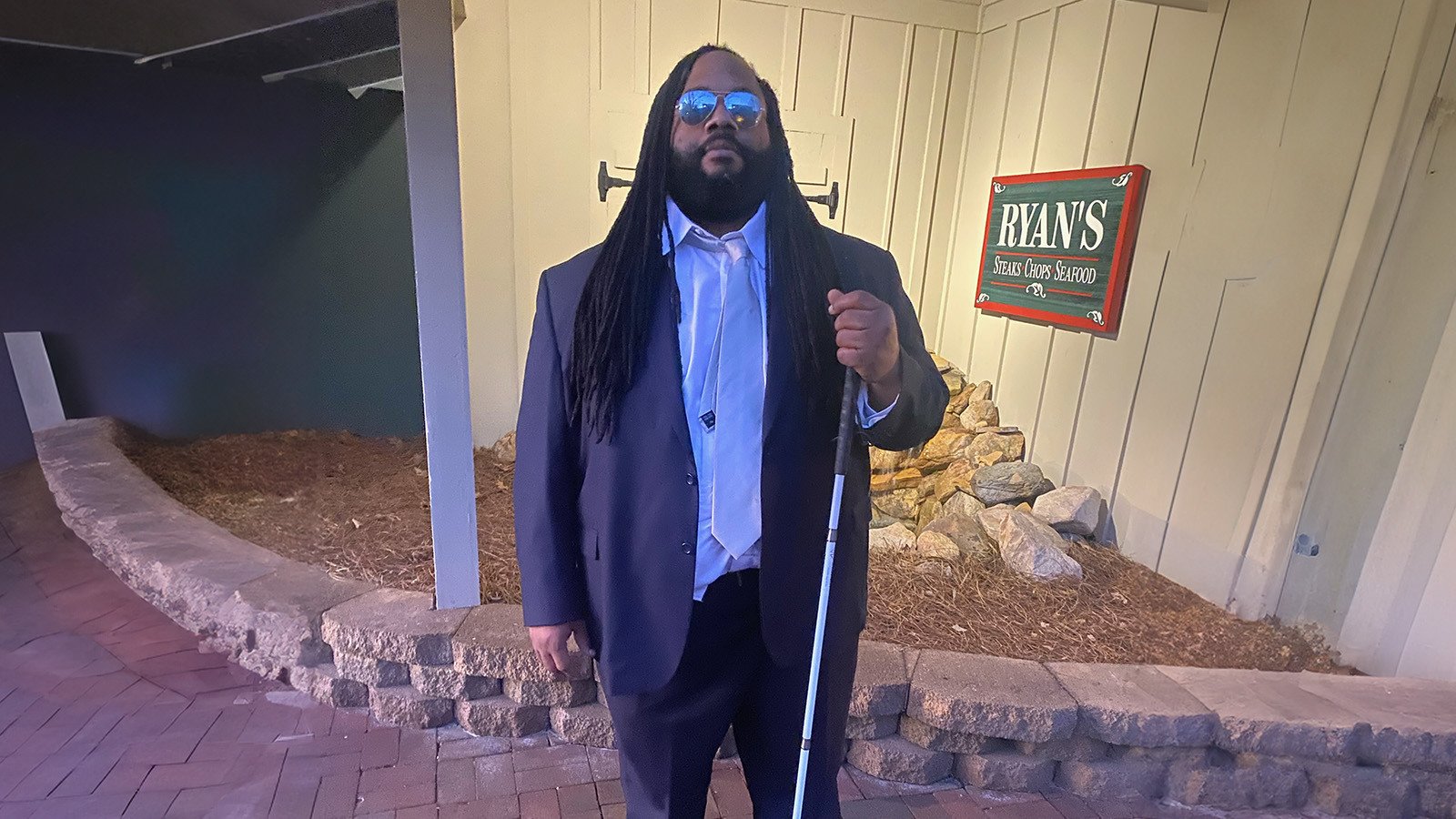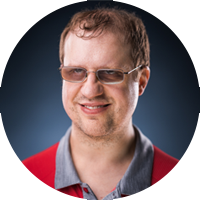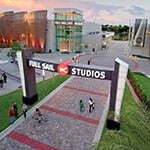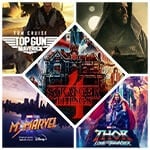Full Sail Stories
Published Apr 18, 2024
Recent Full Sail Grad is Grateful for Faculty Collaboration on Accessibility
Thanks to his perseverance and a team effort with his instructors, Andre Woods recently earned his second degree from Full Sail University.

Full Sail grad Andre Woods might not be able to see the world with his eyes. However, his vision for success is very acute. This is why he recently completed his second degree from the university.
Andre, 39, has optic atrophy, a condition in which the optic nerve deteriorates and causes blindness. He was injured when a stiletto hit him in the face while working as a security guard. The incident occurred in 2006, and his eyesight gradually diminished until he went completely blind in 2013.
After losing his sense of sight, he worked in a warehouse in Kansas through the AbilityOne Program, a federal effort to put people with disabilities to work. It was then on to North Carolina for an opportunity with the same organization where he made eyeglasses in an optical lab. Following a layoff from that job early in the COVID-19 pandemic, he completed an eight-week program with I See Music, an Illinois-based company that trains blind and visually impaired individuals on audio production using accessibility tools. The company’s founder, Byron Harden, recommended Full Sail University to Andre.
“I felt like the sky was the limit for me [after I completed that program],” Andre shares.
Andre applied to study audio production at Full Sail, beginning his undergraduate courses in 2020. As soon as he began his online coursework, he immediately felt like a part of the community.
“It’s almost like Full Sail has an unannounced ‘welcome mat policy,’” he says. “I did not have one instructor who didn’t do their job with compassion and understanding for their students."
As a student who cannot visually interact with technology, Andre uses VoiceOver, a built-in screen reader on Mac computers that reads aloud what is displayed on the screen through keyboard commands. While screen readers are mostly reliable, there are instances when they are unable to properly read software elements because of how these other programs are designed. According to Andre, his instructors went above and beyond to support him through some of these accessibility challenges.
“They did everything they could to make things accessible for me,” he says. “They spent a lot of extra time working with me, sometimes even on the weekends. We were all trailblazers for accessibility.”
Brian Smithers, the Program Director for the audio production curriculum, worked closely with Andre. While Brian was confident that visually impaired students could be accommodated in a campus-based audio production curriculum, he says it was next to impossible for the same students to successfully complete their studies online prior to Andre.
“In the past, we have said ‘no’ to a number of aspiring blind students [who wanted to study audio production online],” Brian admits. “It was a horrible thing to have to do, but it was the right thing to do at the time because we did not have the accessibility or technology in place to support their success in the coursework.”
Brian was determined to find some solutions. He and the faculty worked to learn more from software manufacturers and accessibility experts, and had numerous internal meetings. They even spent time navigating with the VoiceOver screen reader, closing their eyes to simulate the experience of a blind user.
Course director Eric Berzins led the effort to find workarounds for Andre to use Wwise, a software platform to create audio for video games.
Another course director, Erik Jackson, found alternative software called Maschine. This program was very similar to Ableton Live, the platform taught as part of the curriculum that Andre was unable to use at the time, but far more accessible with a screen reader.
Plus, Brian encouraged his faculty to ensure PDF files were properly tagged for accessibility. They made sure to substitute certain tools in Project LaunchBox for more accessible ones Andre received as well.
After a nearly five-year effort, they were satisfied with their progress on the accessibility front.
“Every single faculty member [in this area of study] made significant efforts to be sure things were accessible for Andre [and other blind students],” Brian shares.
He adds that collaborating with Andre was a key ingredient to a recipe for success.
“Andre is a firehose of life and energy,” Brian says. “He’s smart, his mind works a mile a minute, he is incredibly understanding, and he’s got a great sense of humor. He has a unique set of characteristics that made him a perfect test case for the adaptations we made, and he did a great job of telling us where things fall short and advocating for how to make things better.”
Brian is also a member of the Universal Design Committee at Full Sail, a group made up of faculty and staff from across the university. The committee has been working together to build institutional knowledge on accessibility for all students and the broader Full Sail community.
From his standpoint, Brian is certain the audio production area of study is now prepared to support students with visual impairments.
“We feel very good about enrolling future visually impaired students because we feel as though we’ve got most of the major hurdles figured out,” he explains. “We know we have more to learn, but we will just pick ourselves up and do better [when necessary]. I couldn’t be prouder of the way our faculty has risen to the occasion.”
After completing his undergraduate studies, Andre went on to pursue the Innovation & Entrepreneurship master’s. He finished the online program this past February, making him a two-time graduate of Full Sail. He also became the first person in his family to earn a graduate degree.
“I feel accomplished and beyond motivated for the simple fact that I can be an inspiration to others,” he says.
Andre’s day job involves doing government contract work for Industries of the Blind in North Carolina. He also does audio production and DJ work on the side. His goal is to design a fully accessible recording console with tactile buttons for blind audio enthusiasts and create opportunities for these individuals to work at major venues like football stadiums and arenas. He would also like to establish a scholarship for visually impaired students who attend Full Sail.


